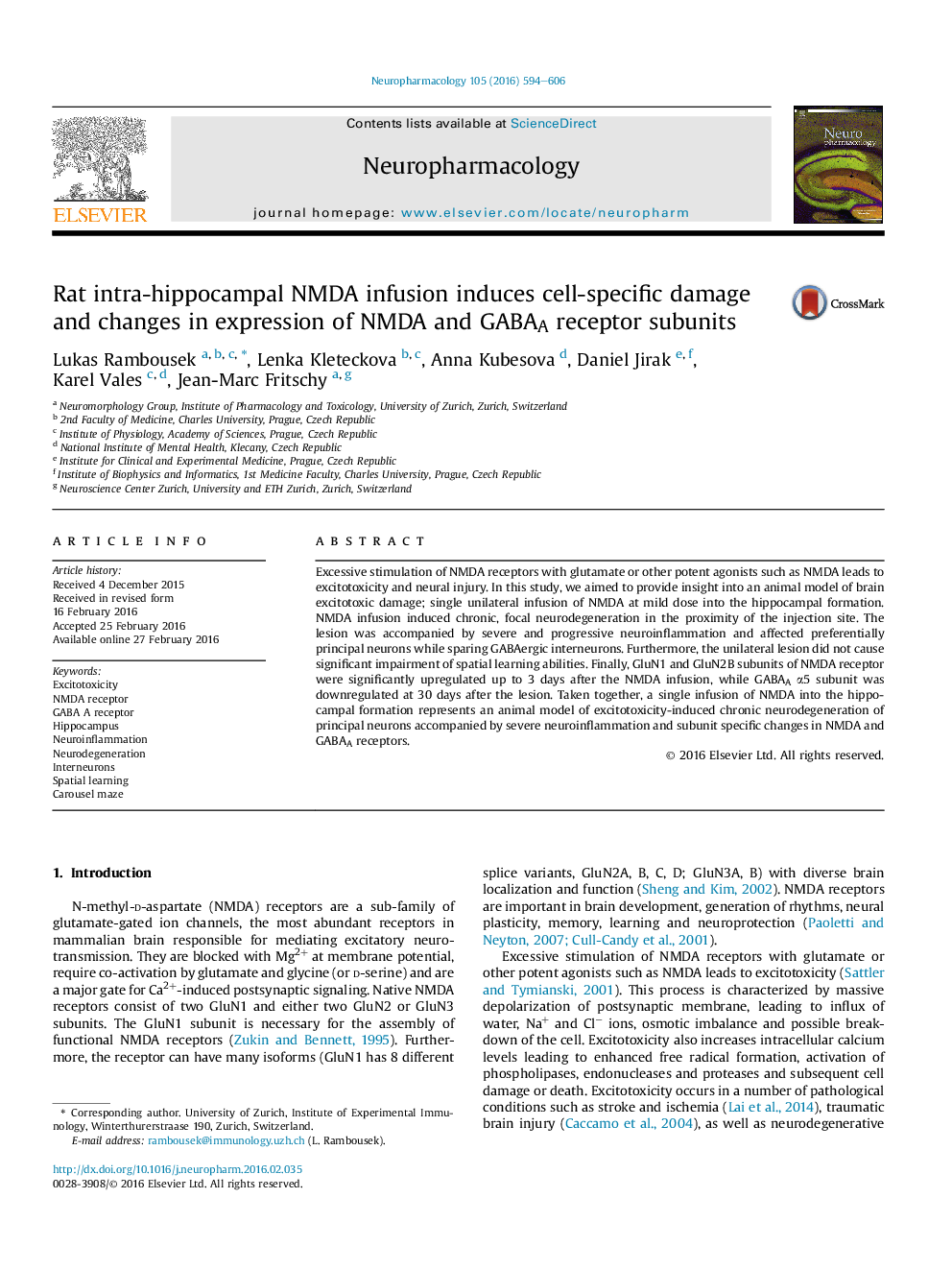| Article ID | Journal | Published Year | Pages | File Type |
|---|---|---|---|---|
| 5813411 | Neuropharmacology | 2016 | 13 Pages |
â¢The infusion of NMDA induced degeneration of hippocampal principal cells.â¢Neurodegeneration was accompanied with progressive and severe neuroinflammation.â¢The lesion did not induce loss of GABAergic interneurons.â¢GluN1 and GluN2B subunits of NMDA receptor were upregulated at early time points.â¢GABAA receptor α5 subunit was downregulated at 30 days after the lesion.
Excessive stimulation of NMDA receptors with glutamate or other potent agonists such as NMDA leads to excitotoxicity and neural injury. In this study, we aimed to provide insight into an animal model of brain excitotoxic damage; single unilateral infusion of NMDA at mild dose into the hippocampal formation. NMDA infusion induced chronic, focal neurodegeneration in the proximity of the injection site. The lesion was accompanied by severe and progressive neuroinflammation and affected preferentially principal neurons while sparing GABAergic interneurons. Furthermore, the unilateral lesion did not cause significant impairment of spatial learning abilities. Finally, GluN1 and GluN2B subunits of NMDA receptor were significantly upregulated up to 3 days after the NMDA infusion, while GABAA α5 subunit was downregulated at 30 days after the lesion. Taken together, a single infusion of NMDA into the hippocampal formation represents an animal model of excitotoxicity-induced chronic neurodegeneration of principal neurons accompanied by severe neuroinflammation and subunit specific changes in NMDA and GABAA receptors.
